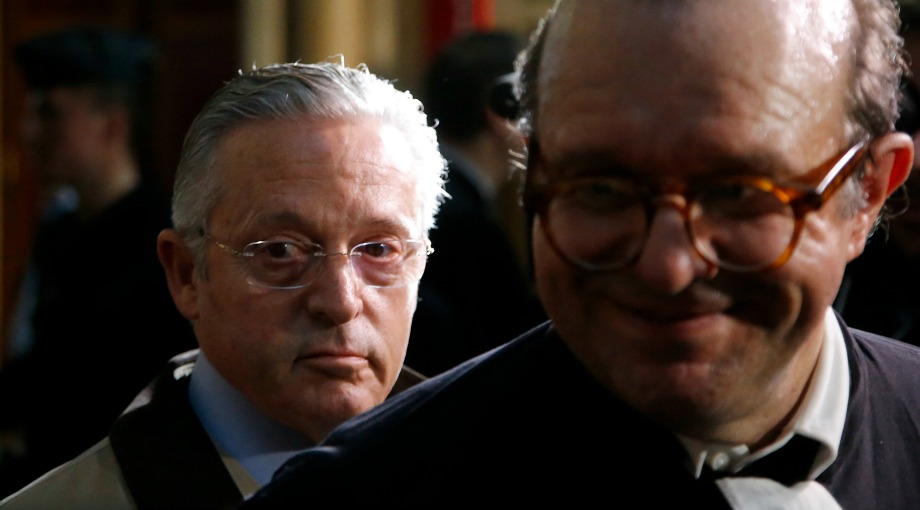It is one the biggest tax fraud trials France has ever seen.
French authorities are charging famous art collector Guy Wildenstein, descendent of a Franco-American art-dealing dynasty in New York and current president of Wildenstein & Company, of tax fraud and money laundering, in connection to the estate of his father, Daniel Wildenstein, who passed away in 2001.
The super-rich, quite extravagant, characters of the family drama – mixing tax evasion and fights over inheritance – have inspired the French media to rename the scandal “Dallas-upon-Seine,” referencing the famous American soap opera.
The criminal investigators suspect that as Daniel Wildenstein lay in a coma right before his death, his two sons – Guy and Alec – took art from the family vault worth close to $250 million and moved it to tax havens in Switzerland, the New York Times reports. French authorities claim the transfer of the family collection was part of a coordinated bid to avoid an estate tax bill in France, and are now seeking to reclaim about $600 million in unpaid taxes, fines and interest.
On Wednesday, the trial – which had opened two days before – was abruptly postponed until May 4, to rule the constitutionality of examining both a fiscal and a criminal case at the same time, an issue raised by the defense lawyers, according to the Financial Times.
Described in the Guardian as the “trial of the missing millions,” the court case will include a long list of luxury assets that will likely highlight some of the intricate links between the world of high-value art and the use of secretive offshore jurisdictions and business structures.
In 2013, ICIJ‘s Offshore Leaks investigation revealed how Spaniard Carmen Thyssen-Bornemisza, one of the world’s biggest art collectors, had gained tax benefits by holding ownership of her art through secrecy-guarded companies in tax havens like the Cook Islands.
“It’s convenient,” her lawyer said. “You have more freedom to move the assets, not just buying or selling, but also circulation.”
Offshore ownership helps prevent works of art from getting tied up by laws in various countries that can make it “a nightmare” to transfer them across national borders, he said.
Using offshore entities to buy and sell art “is quite common among the very, very wealthy,” said Hector Feliciano, a Puerto Rican journalist who investigated the commercial side of the art world for his book about Nazi-plundered art, The Lost Museum.
Feliciano said many art dealers and big collectors use companies in the Cayman Islands, Luxembourg, Monaco and other “loosely regulated” jurisdictions to trade and own art in much the same way they use offshore entities to make investments, reduce their taxes and protect their fortunes.
The offshore links of the art market are facing increasing scrutiny, as authorities seek to enforce tax rules governing the sale of pieces of art. In New York, law enforcement and tax collectors are stepping up their investigations into the tax affairs of art collectors using tools like sales and shipping records and “sending out hefty invoices in the process,” according to a recent article published in Barron’s.
One lawyer described receiving a “seven-figure” tax bill for a client, while an accountant said clients were making “panicked phone calls” after receiving letters from the authorities. According to Barron’s, the tax crackdown comes after more than 10 years of relatively lax enforcement but the publication predicts authorities’ renewed focus will now continue into the future.
Read more about the impact from ICIJ’s investigations, and find out how you can support ICIJ’s work
![]() Find out first! Receive ICIJ’s investigations by email
Find out first! Receive ICIJ’s investigations by email
